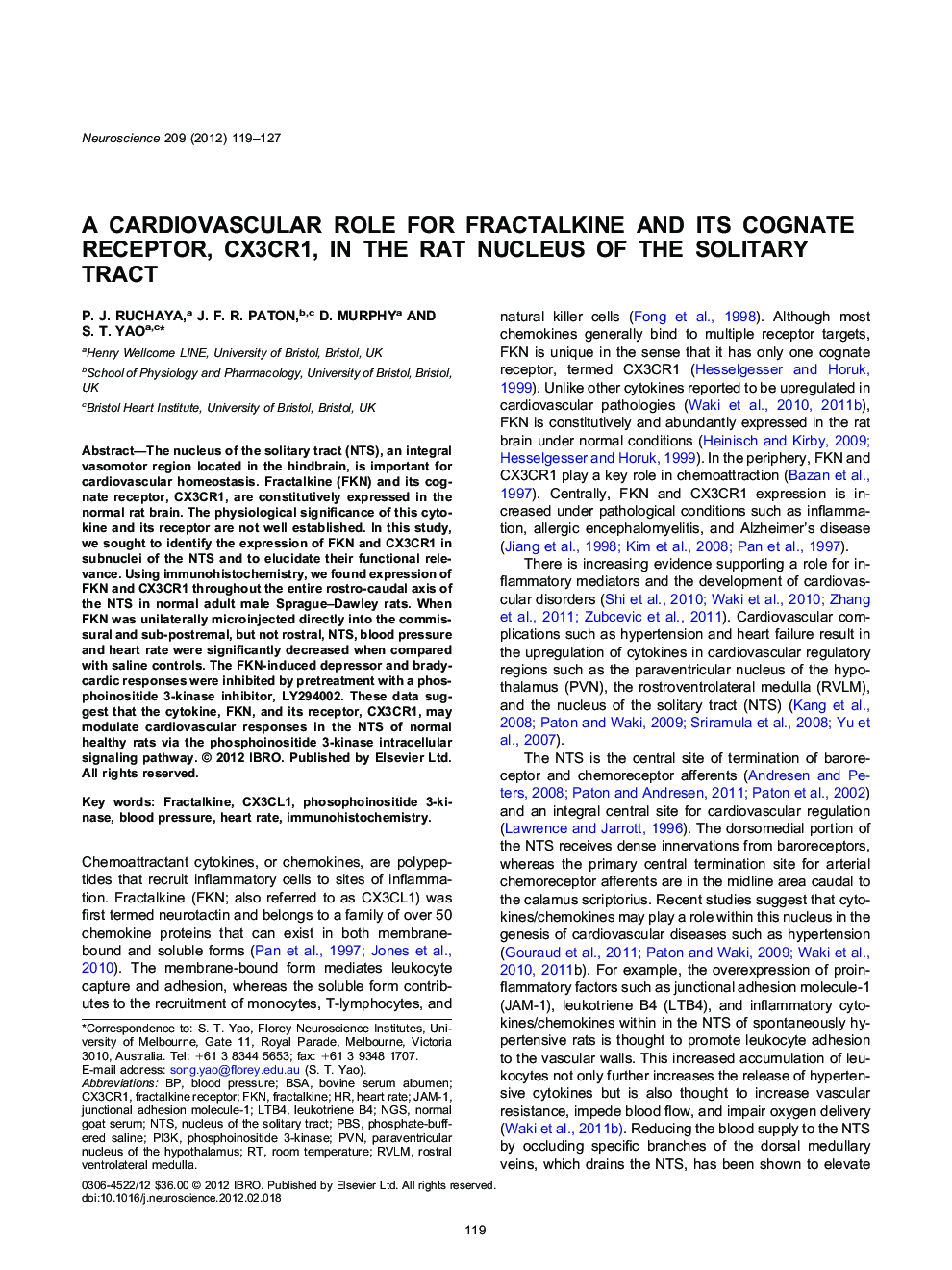| Article ID | Journal | Published Year | Pages | File Type |
|---|---|---|---|---|
| 4338525 | Neuroscience | 2012 | 9 Pages |
The nucleus of the solitary tract (NTS), an integral vasomotor region located in the hindbrain, is important for cardiovascular homeostasis. Fractalkine (FKN) and its cognate receptor, CX3CR1, are constitutively expressed in the normal rat brain. The physiological significance of this cytokine and its receptor are not well established. In this study, we sought to identify the expression of FKN and CX3CR1 in subnuclei of the NTS and to elucidate their functional relevance. Using immunohistochemistry, we found expression of FKN and CX3CR1 throughout the entire rostro-caudal axis of the NTS in normal adult male Sprague–Dawley rats. When FKN was unilaterally microinjected directly into the commissural and sub-postremal, but not rostral, NTS, blood pressure and heart rate were significantly decreased when compared with saline controls. The FKN-induced depressor and bradycardic responses were inhibited by pretreatment with a phosphoinositide 3-kinase inhibitor, LY294002. These data suggest that the cytokine, FKN, and its receptor, CX3CR1, may modulate cardiovascular responses in the NTS of normal healthy rats via the phosphoinositide 3-kinase intracellular signaling pathway.
▶Fractalkine (FKN) can activate CX3CR1 receptors to modulate neurotransmission. ▶We show FKN and CX3CR1 are abundantly expressed on rat NTS neurons. ▶FKN microinjections into the NTS elicit falls in blood pressure (BP) and heart rate (HR). ▶FKN might be used as a neurotransmitter/modulator in the NTS to control BP and HR.
